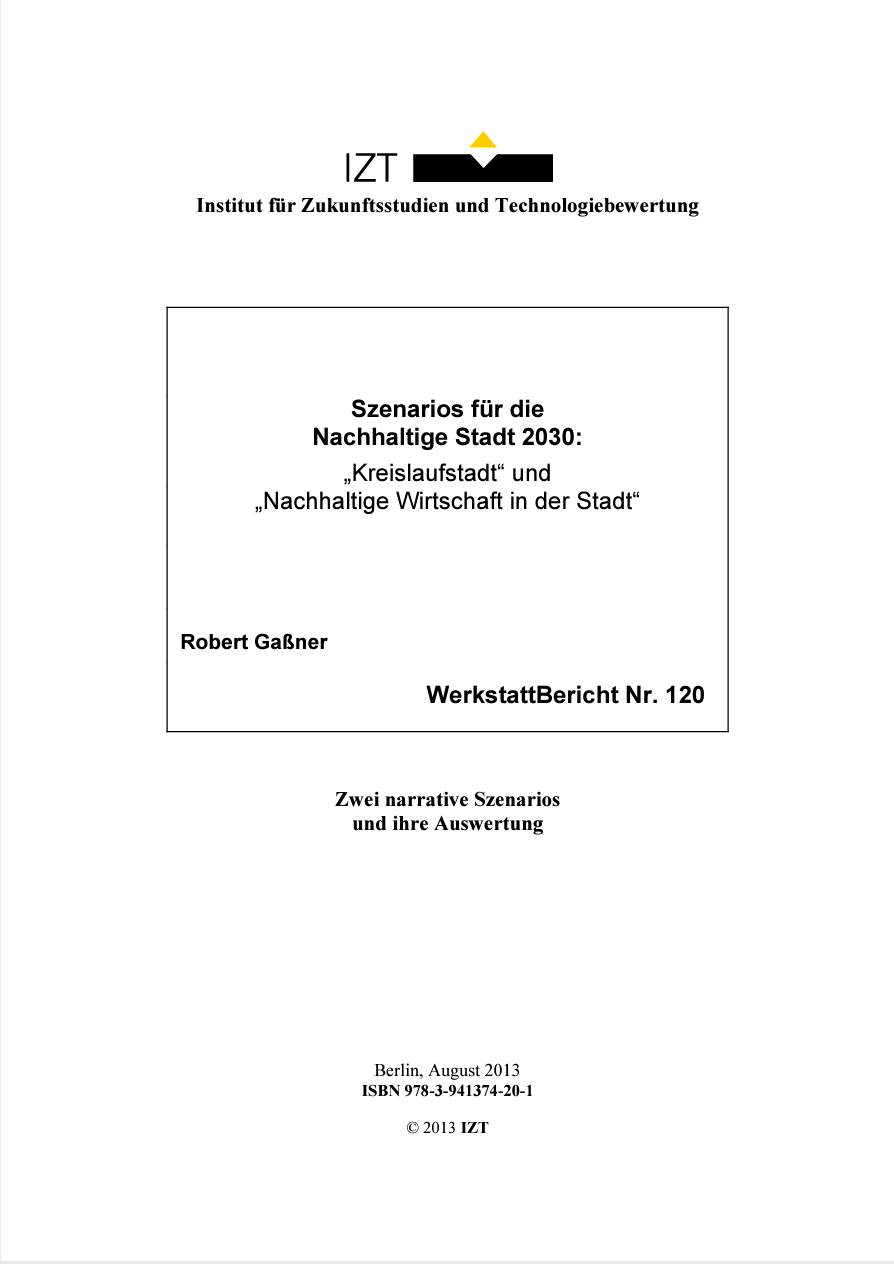Scenarios for the Sustainable City 2030
Abstract
The aim of the project was to support the further differentiation of an integrated sustainability policy in the German environmental ministry. The design of sustainable urban living environments was chosen as the focus of the project, since integrated sustainability policy must be consistently reflected in the lifeworld perspective of citizens, consumers, employees, transport users, etc. The project was designed to support the further differentiation of integrated sustainability policy within the German environmental ministry. In order to strengthen an effective integrated sustainability policy, relevant thematic fields and their actors within German environmental policy at the federal, state and local levels were examined with regard to (further) networking and synergy potentials. For this purpose, as well as for the identification and resolution of possible conflicting goals, a systematic, participatory scenario process was unfolded successively in two complementary thematic strands selected jointly with BMU and UBA ("circular city" and "sustainable economy in the city"). Normative scenarios for the sustainable city 2030 were developed, options for action, strategy elements and concrete networking approaches for integrated sustainability policy were derived and concretised in the direction of operational implementation and practical cooperation in the environment ministry. The present excerpt publication contains a project overview, the two scenarios, documentation of the scenario evaluation workshops and an assessment of the method evaluation. Further parts of the report are available from UBA as part of the overall publication.
